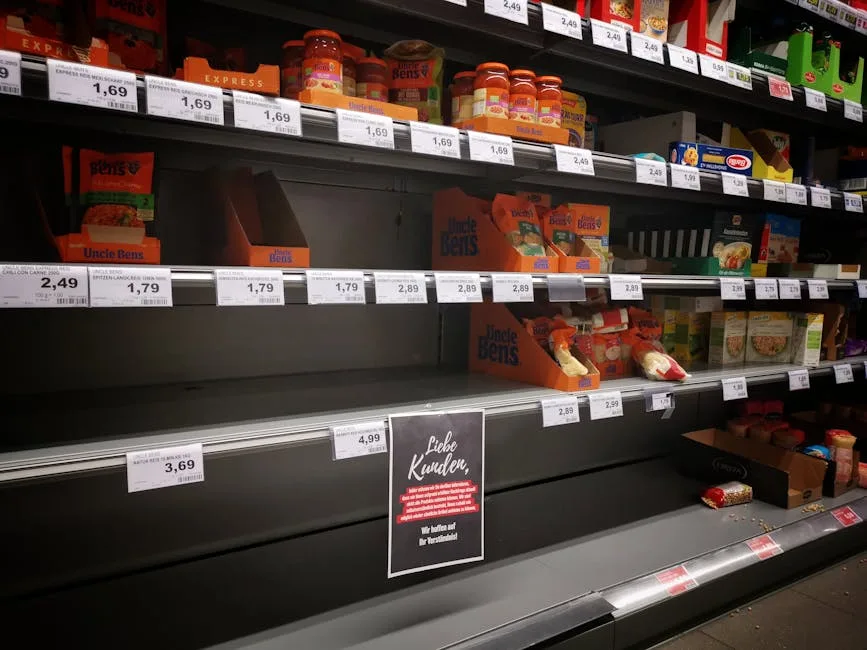
United Natural Foods, Inc. (UNFI), the primary supplier for Whole Foods and a major North American grocery distributor, has restored its core systems following a cyberattack that disrupted electronic ordering and invoicing systems in early June 2025. The incident caused widespread supply chain delays, forcing retailers to resort to manual processes and leaving shelves empty for perishable goods1. This article examines the attack’s technical impact, recovery timeline, and implications for supply chain cybersecurity.
Attack Timeline and Operational Impact
The cyberattack was first detected on June 5-6, 2025, when UNFI identified unauthorized activity in its systems. The company immediately shut down affected infrastructure to contain the damage, engaging law enforcement and cybersecurity firms for investigation2. For nearly two weeks, UNFI processed orders manually via phone and paper, causing delivery delays of 30-50% across its network3. Whole Foods and independent grocers reported shortages of organic products and perishables, with some stores experiencing empty shelves for over a week4.
Technical Recovery and Financial Impact
UNFI began restoring core systems by June 16-17, with electronic ordering functionality returning for 80% of clients by June 205. The company reported $15 million in direct costs from the incident during its Q3 earnings call, alongside $8 billion in quarterly sales6. CEO Sandy Douglas announced a $50 million investment in cybersecurity upgrades to be implemented by 2026, focusing on threat detection and system resilience6.
| Metric | Impact | Source |
|---|---|---|
| Delivery Delays | 30-50% slowdown | 3 |
| System Recovery | 80% clients by June 20 | 5 |
| Financial Cost | $15 million direct impact | 6 |
Industry and Regulatory Response
The attack prompted broader discussions about supply chain vulnerabilities in the grocery sector. Logistics firms like States Logistics Services advocated for shared threat intelligence platforms, while the Federal Trade Commission launched an inquiry into cybersecurity practices among food distributors7. Industry analysts noted a 300% increase in attacks targeting food distributors since 2023, highlighting the need for mandatory IT safeguards in critical supply chain nodes8.
Security Recommendations
The UNFI incident demonstrates several key considerations for organizations managing critical supply chain infrastructure:
- Implement redundant ordering systems that can operate independently during outages
- Establish manual fallback procedures for critical business functions
- Conduct regular supply chain cybersecurity assessments with key partners
- Develop incident response plans specifically addressing third-party system dependencies
As of June 27, 2025, UNFI reports normal operations have resumed, though some smaller retailers may still experience residual effects from the disruption. The incident serves as a case study in the cascading effects of cyber incidents on physical supply chains and the importance of resilience planning for critical infrastructure providers.
References
- “UNFI Statement on Cybersecurity Incident”, United Natural Foods, Inc., 2025.
- “UNFI Restores Ordering Systems Following Cyberattack”, Supermarket News, 2025.
- “UNFI Cyberattack Response Tests Grocery Supply Chain”, Grocery Dive, 2025.
- “Food Distributor UNFI Recovers From Cyberattack as Grocery Shortages Persist”, TechCrunch, 2025.
- “UNFI Groceries Supplier Cyberattack Update”, The Record, 2025.
- “UNFI Reports Third Quarter Fiscal 2025 Results”, Investor Relations, 2025.
- “FTC Probes Grocery Cyberattacks After UNFI Breach”, Bloomberg, 2025.
- “Industry Collaboration on Supply Chain Cybersecurity”, LinkedIn Post, 2025.





